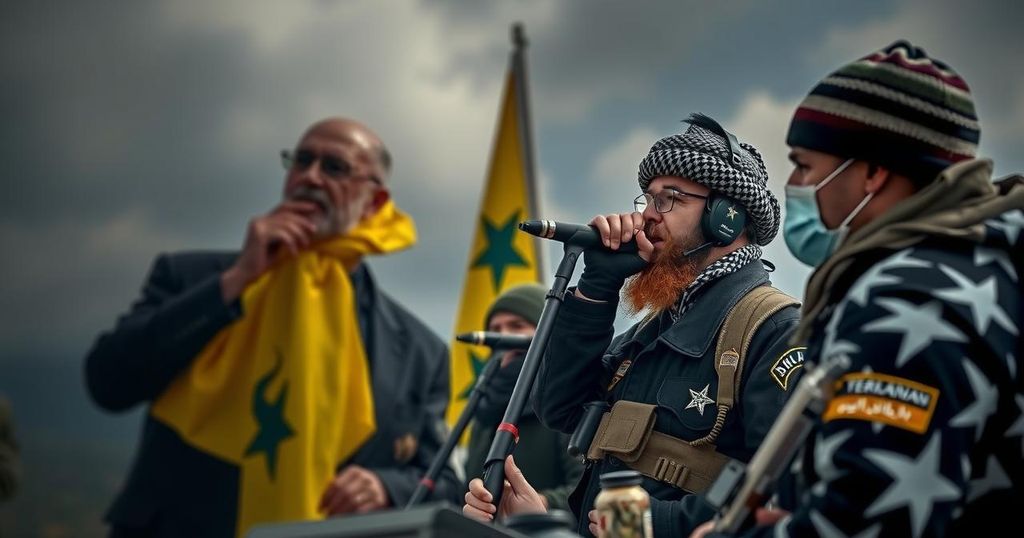Hezbollah’s Cease-Fire: A Recognition of Defeat After Prolonged Conflict
Hezbollah’s acceptance of a cease-fire with Israel comes after thirteen months of conflict that has severely weakened the organization. The cease-fire highlights the group’s diminished influence and the challenges it faces in both military and political spheres within Lebanon, especially following significant Israeli military operations that have inflicted heavy losses on its leadership and communities.
After enduring thirteen months of relentless warfare, Hezbollah has recently agreed to a cease-fire with Israel, which has significantly diminished its stature and influence. Previously, Hezbollah claimed to be the sole protector of Lebanon against Israeli aggression, touting advanced weaponry and robust commandos. However, the prolonged conflict and relentless Israeli offensives have shattered these assertions, convincing many that Hezbollah’s current cessation of hostilities represents a stark defeat rather than a strategic victory.
The terms of the 60-day cease-fire aim to establish a foundation for a more durable peace; still, it follows months of severe Israeli incursions that have left the militant group in chaos. Israeli intelligence’s effective infiltration and targeted assassinations of key leaders, including the long-standing secretary-general Hassan Nasrallah, have further eroded Hezbollah’s cohesion and morale. Moreover, aggressive bombing campaigns in its strongholds have led to mass evacuations and extensive infrastructure destruction, complicating the possibility of returning to pre-war conditions for affected populations.
Hezbollah’s unilateral decision-making in igniting the conflict fosters widespread isolation, both domestically and regionally. This has not only left the organization vulnerable but has also placed a substantial financial burden on Lebanon for recovery and rebuilding. While its opponents are optimistic about Hezbollah’s weakened influence on the nation’s political dynamics, the prospect of other Lebanese factions emerging to challenge its authority remains uncertain.
The article examines the current state of Hezbollah following a protracted war with Israel, outlining the organization’s decline in power and popularity. Historically, Hezbollah has thrived on the narrative of being Lebanon’s primary defender against Israeli forces, leveraging its military capabilities and regional support. However, the drawn-out conflict has severely tested this image, exposing its vulnerabilities and prompting a critical reassessment of its role within Lebanon and its ability to govern effectively after significant losses.
In summary, Hezbollah’s acceptance of a cease-fire marks a pivotal moment in its diminishing authority following a tough period of military engagement with Israel. The cease-fire not only highlights Hezbollah’s weakened position but also signals potential shifts in Lebanon’s political landscape. As the country faces the daunting task of reconstruction, the long-term implications for Hezbollah’s power dynamics and its capacity to influence the Lebanese government remain to be seen.
Original Source: www.nytimes.com




Post Comment